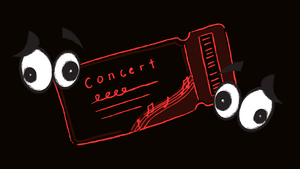Culture Minister Chris Bryant yesterday had a message for ticket resale platforms like Viagogo, StubHub and Gigsberg, declaring in Parliament: “Change is coming, so they should start getting ready for it”. Speaking at a Westminster Hall debate on secondary ticketing, he added, “we made manifesto commitments during the general election that we are absolutely determined to implement”.
That manifesto commitment was to introduce “new consumer protections on ticket resales”, which - Keir Starmer said earlier this year - will include a price cap, so that ticket touts can only mark up the price of tickets they are selling by 10%. Bryant didn’t give any indication on when the government will make good on that commitment - there’s a promised consultation to go through first - but he insisted that any new laws would be properly enforced.
That commitment on enforcement is probably as important as the promise of a price cap. Sharon Hodgson MP, a long-time campaigner against for-profit ticket touting, also spoke during the debate and highlighted how existing ticket touting regulations often go unenforced. And even when individual touts have been prosecuted for breaking the rules, “incredibly”, Hodgson noted, the resale platform those touts used “faced no such sanctions”.
Hodgson has long advocated for a ticket touting price cap, first proposing it in Parliament in 2011. Optimistic that that regulation will finally become law in the UK now that her party is in power, she also noted that her campaign for a price cap recently won an important new supporter: Live Nation CEO Michael Rapino.
While Live Nation’s Ticketmaster used to operate its own resale platforms in the UK - and still does in the US - the live giant has become more critical of secondary ticketing of late. Hodgson noted that, at a recent Bloomberg conference, Rapino said, “you shouldn’t have a middleman that has nothing invested in the business make any money from it”, adding, “hallelujah! I have been saying that for years”.
Yesterday’s debate was instigated by Emma Foody MP, who is also campaigning for more regulation of ticket touting. In her speech during the debate, Hodgson ran through the various past efforts to regulate ticket touts and the resale platforms they utilise, which included new rules being introduced around transparency and a ban on the bots that touts use in order to hoover up tickets from primary sellers.
But those new regulations often haven’t worked because they are not enforced, she said, adding, “for a recent Sabrina Carpenter ticket pre-sale of just 10,000 tickets, there were 380,000 bots in the queue attempting to harvest them”.
“Despite uncontrolled touting taking place on an industrial scale”, she went on, “prosecutions were few and far between under the last government". National Trading Standards did successfully prosecute two groups of touts who employed illegal methods. Those “precedent-setting convictions” should, Hodgson argued, “have opened the floodgates to more action against those who flout the law ... but sadly they have not, because resources have run dry”.
“The details of the prosecutions are extraordinary”, she went on, “with touts fraudulently acquiring tens of thousands of tickets and then reselling them through websites such as Viagogo that were not compliant with UK consumer law”.
In both of the successful prosecutions against individual touts, “it was strongly suggested that the resale platforms were complicit in the touts’ illegal activities”. The touts in those cases “were prosecuted and jailed”, but the platforms they used “faced no such sanctions”.
“They kept their cumulative 25% service fees from the illegal transactions”, Hodgson explained, adding, “if we do the numbers, we see that means millions of pounds - and they continue to profit from further illicit trading. Where are all the illegal proceeds of crime? Why have they never been recovered?”
While National Trading Standards led the criminal cases against individual touts, it was the Competition & Markets Authority that was set the task of ensuring the platforms complied with the rules. It did take some action against some of the platforms in that role, though campaigners argue it could and should have done much more.
“Sadly, despite the mountains of evidence that campaigners and myself have provided the CMA with”, Hodgson went on, “it has carried out no such prosecutions and is in desperate need of clearer ministerial oversight. I hope that the minister takes note of that point in particular”.
Returning to the proposed price cap, Hodgson pointed out that Rapino - in his Bloomberg interview - suggested a 20% cap. But that, she reckons, “is still too high, because it leaves room for touts to operate by still harvesting large numbers of tickets to make large amounts of money”.
The 10% she proposes basically covers the admin costs associated with the resale, so that fans who originally intended to go and see a show, but now cannot attend, can sell on their ticket without being out of pocket. But if you go with a 20% cap, she said, “that extra 10%, if someone buys enough tickets, will make them a lot of money”.
We are still awaiting a timeline for the government’s consultation on ticketing. Once it’s underway, we will see to what extent Viagogo, StubHub and Gigsberg are “ready to change”. Given a 10% price cap is a significant threat to their core business - which is facilitating commercial level touting - it seems likely they will put up a big fight, planning for which - we already know - is very much underway.

